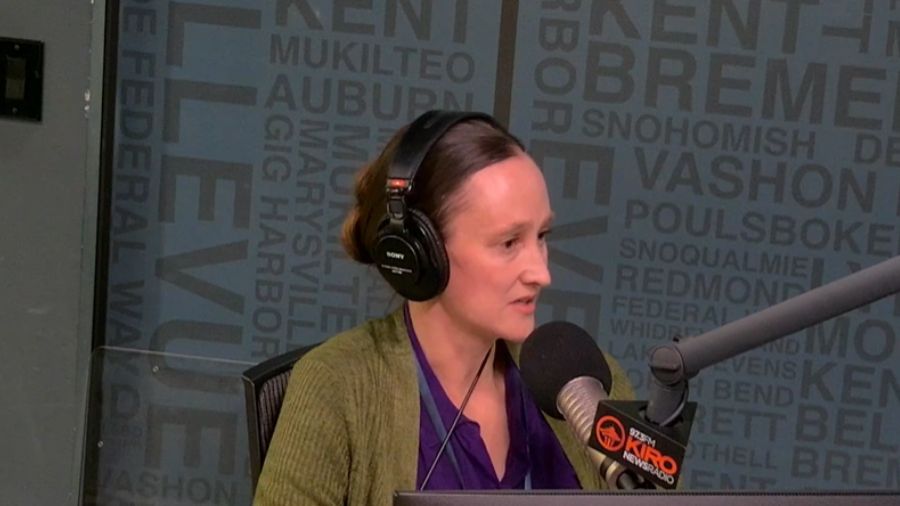Harger: Washington spent $4B on the climate. China erased it in a week.
Aug 26, 2025, 5:01 AM | Updated: 12:48 pm
Remember when former Washington Governor Jay Inslee promised the Climate Commitment Act (CCA) would cost just pennies?
Washington drivers have paid $4 billion more for gas since then. That’s nearly $700 per driver in our state for a climate program we can’t even prove is working.
The Climate Commitment Act was pitched as a cornerstone of Inslee’s climate legacy. Lawmakers called it essential to cut carbon emissions.
At the time, Inslee told KIRO Newsradio reporter Matt Markovich the cost would be minimal: “Pennies. We’re talking about pennies, potentially. Not all of this would be passed off to consumers, and what they would, would be pennies.”
The CCA went into effect in January 2023 with carbon auctions. Fuel companies buy carbon allowances, and they pass that cost straight to drivers.
Seattle gas prices split from Portland’s
The result? Gas prices here immediately split from Portland’s.
In August 2022, before the program, Seattle and Portland were $4.85 a gallon.
Now? Seattle’s $4.56 and Portland’s $4.03. That’s 53 cents more per gallon, about $8 extra every time you fill up.

Seattle gas prices compared to Portland’s and the U.S. average from 2022 to 2025. (Image courtesy of GasBuddy)
Now, let’s be clear: climate change is real. Global carbon emissions absolutely need to come down. But Washington produces less than two-tenths of 1% of global emissions. We could ban cars tomorrow, and the planet wouldn’t notice.
China opens a new coal plant just about every week. Just one of those plants produces more carbon than Washington hopes to save in an entire year with the CCA. Our $4 billion, up in smoke.
That’s why experts warn: climate change isn’t solved by one medium-sized state. It takes the whole world.
Supporters said the money isn’t wasted. They pointed to electric buses, charging stations, and clean-energy investments. And at its best, the CCA gives Washington a chance to speed up clean-energy technology that could matter far beyond our borders.
Where does the money really go?
But the conservative-leaning Washington Policy Center found that 70% of the spending so far is tied up in government staffing and planning. Only 9% goes to tangible things like forest health or air pollution reduction.
And we still don’t know if emissions are actually going down. The Washington State Department of Ecology won’t release that data until next year. Two years and $4 billion into this experiment, and nobody’s saying if it works.
Washington voters upheld the Climate Commitment Act last November. The people have spoken, and it’s not going anywhere.
The question isn’t whether we should fight climate change—we should. The question is whether Washington families should pay $4 billion for a symbolic gesture while real solutions require federal and international action.
We are spending billions to save a few million tons, and China erased it in a week. And remember: this isn’t a one-time hit. We’ll be paying billions again next year, too.
Charlie Harger is the host of “Seattle’s Morning News” on KIRO Newsradio. You can read more of his stories and commentaries here. Follow Charlie on X and email him here.

















